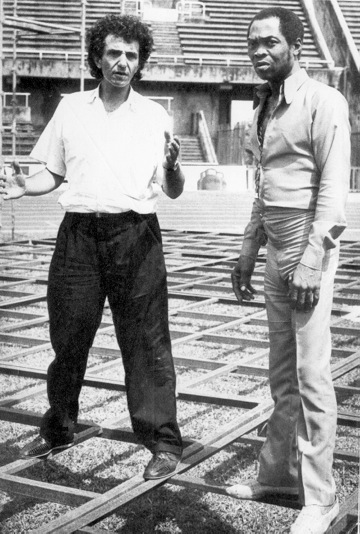
FELA Died of Mental Torture arising from Nigeria Government Regular Beating-Rikki Stein, British born longest music manager
……Lament: ‘He would have been weakened by the beatings he’d taken that allowed AIDS disease to enter his body’
*Revealed untold details of how they met the first time in a London Hotel
*Says: ‘Fela used music as a weapon to address issues of corruption, social injustice, mismanagement and societal cruelty in his 50 albums’
*Why ‘Abami Eda’ married 27 women same day to repay them for their solidarity
*Explain: ‘I smoked Marijuana all the while I worked with Fela. We have established a Fela Anikulapo Kuti Scholarship at Trinity Laban College of Music in London where Fela had studied for 4 years’
*Confess: ‘I’m a self-appointed guardian of Fela’s legacy by virtue of our friendship, determined to ensure that he takes his rightful place among the pantheon of 20th Centuries most iconic actors. Fela’s catalogue belongs to the Fela Anikulapo Kuti Estate of which all of his children are beneficiaries and all receive royalties’
*Rikki add: ‘Fela’s Shrine was paradise, attended by a cross section of the population. Here’s an extract from my memoirs, describing my first visit. We reached there around 2.00am. It was Heaven. Egypt 80 were playing, people were dancing, laughing, enjoying’
*PLUS what he will tell Fela if he sees him face-to-face today
*BY GEORGE ELIJAH OTUMU/Executive EDITOR & Group Managing Director/NAIJA STANDARD NEWSPAPER Inc USA

RIKKI STEIN was born Eric Stein in 1942 into a modest Jewish family in the London suburb of Ilford – a teenage friend gave him the nickname. Stein’s restless curiosity and disdain for conventional schooling set him on a unique path.
Rikki has had what must have seemed an unlikely career. As a music manager he has toured the world in the company of music legends – from the late Nigerian Afrobeat star Fela Kuti to American rockers The Grateful Dead and Morocco’s Master Musicians of Joujouka.
Walking out of Ilford County High School on his 16th birthday, Stein immediately set out on a life journey that would take him from the gambling world to opening coffee bars, real estate ventures and, ultimately, his first love – music. His passion for jazz opened the door to his career in music management, at first organizing jazz venues.
His world is one of constant motion – moving from country to country, artist to artist, story to story. Stein has toured some of the great artists and bands, including UK and US rock stars Jimi Hendrix, The Grateful Dead, The Kinks, The Animals and The Yardbirds. Stein managed the Moroccan Master Musicians of Joujouka and, of course, the politically outspoken Fela, who drove a new west African music movement called Afrobeat in the 1960s and 1970s.
Stein has earned widespread respect within the industry for his commitment to this legacy. Apart from working on the remastering of the catalogue, he played a vital role in taking Fela, the Musical to Broadway. He also created the UK version of the Felabration events and supports several other projects focused on Fela’s legacy.
This renowned music manager, Rikki Stein, has spent nearly six decades in the entertainment industry. He has been employed by record companies as a producer in both France and the United States and mane more
In this Exclusive Interview with Rikki, this Encyclopedia of music management, longest manager of Nigeria’s Afrobeat Legend, Fela Anikulapo Kuti, bares his mind to the Editorial Board of NAIJA STANDARD NEWSPAPER Inc USA on multiple issues surrounding ‘Aba mi Eda (which translates strange Icon) legacy, FELA’s usage of music to fight societal ills in Nigeria and lots more’.
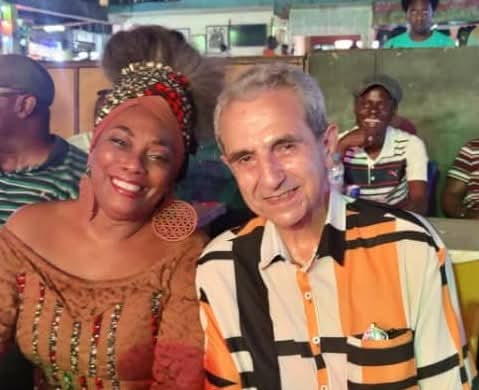

*NAIJA STANDARD: How long have you worked for Nigeria’s Afrobeat Music Legend, Fela ANIKULAPO Kuti as a Manager?
I began working as Fela’s co-manager with my partner, Francis Kertekian (now deceased) in 1982 and continued in that role for 15 years until his passing in 1997
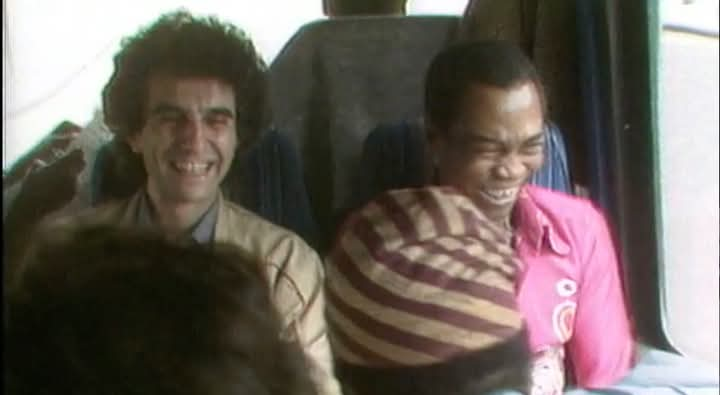
*NAIJA STANDARD: How did you meet Fela Kuti?
I first met Fela in London in 1979
*NAIJA STANDARD: What came to your mind when you first met Fela Kuti?
He exuded great warmth and deep intelligence
*NAIJA STANDARD: How did you become a close friend of Fela?
At that first meeting in a London hotel. I can’t explain how it happened, but we became immediate friends. That friendship endured for the rest of his life.
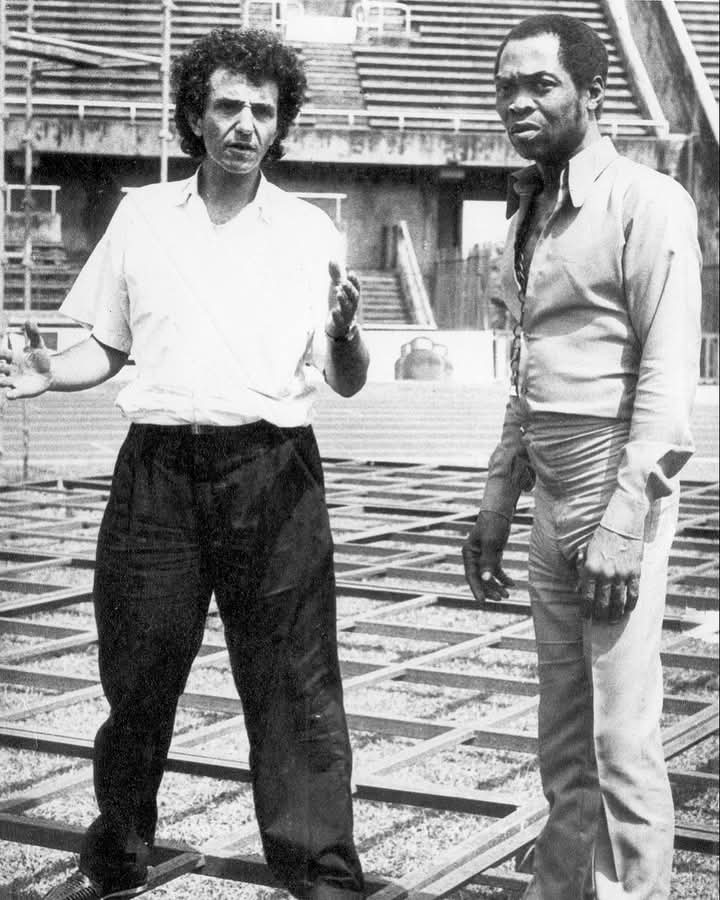
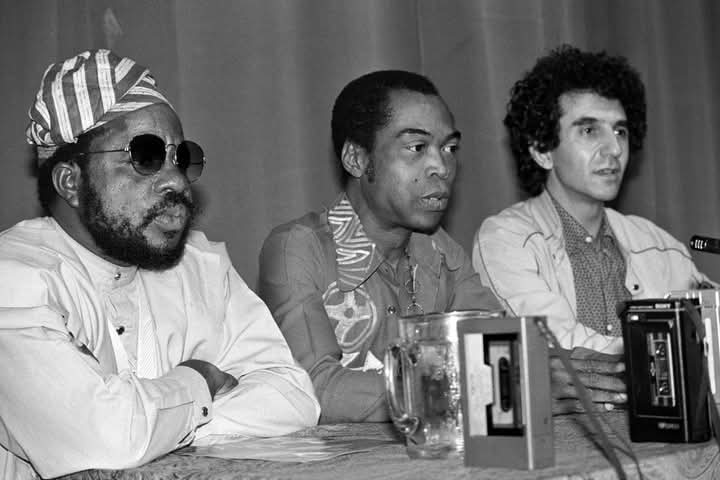
*NAIJA STANDARD: In your own word, how will you describe the enigma called FELA?
He wasn’t an enigma to me. He was a man who knew exactly what he was doing and why he was doing it. Simply put, he devoted his life to the betterment of mankind.
*NAIJA STANDARD: FELA cherished smoking his Marijuana anywhere he went. How did you feel about that while you worked with him?
I felt fine!
*NAIJA STANDARD: Have you ever smoked Marijuana while you worked with FELA?
Yes, all the time!
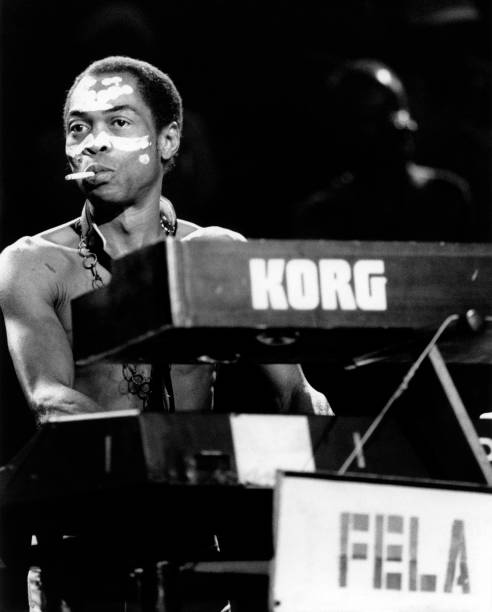
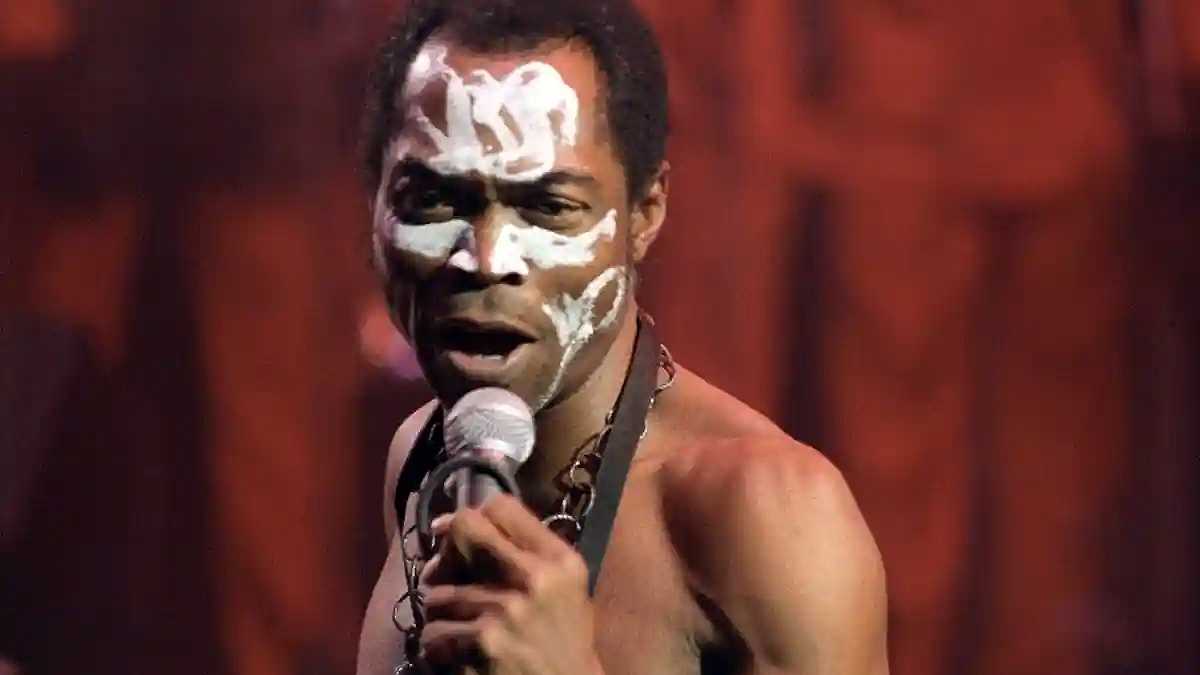
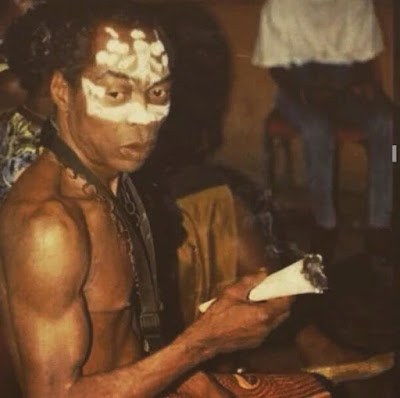
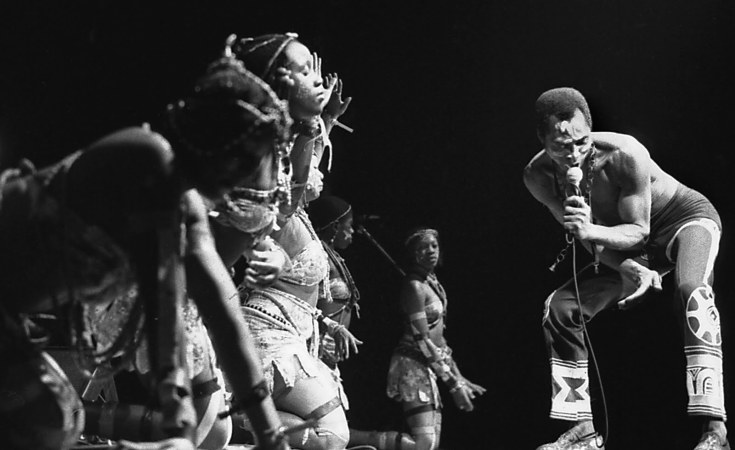
*NAIJA STANDARD: How did you see FELA’s music 🎵 confronting various leadership in Nigeria fighting for good governance?
Fela used his music as a weapon to address issues of corruption, social injustice, mismanagement and societal cruelty. Across his 50 album body of work, he created a musical chariot, in which his message could ride.
*NAIJA STANDARD: Did you have any issue with FELA marrying many wives?
Not at all. He married 27 women on the same day to repay them for their solidarity and to protect them against the vilification of bourgeois society.
*NAIJA STANDARD: Tell us about your Kalakuta/Afrikan Shrine experience where FELA used to perform?
The Shrine was paradise, attended by a cross section of the population. Here’s an extract from my memoirs, describing my first visit. We reached there around 2.00am. It was heaving. Egypt 80 were playing, people were dancing, laughing, enjoying. All kinds of people. It was just four walls. No roof. The stage was a four-foot-high platform at one end, a bar at the other, and rows of seats up to the edge of a dance floor. On the left was a long table covered in books on Egyptology and African history.
The mixing desk was on the right-hand corner of the stage, next to a row of seats reserved for Fela and whoever else had the right to sit there. I was in heaven. After shaking hands with a number of people, I headed straight for the dance floor, where I was enthusiastically welcomed. The music was as entrancing as when I’d heard it in London, and enhanced by the environment in which I was now basking. Fela climbed up on the stage and the whole thing shot up several notches. He played, and I danced, until dawn.
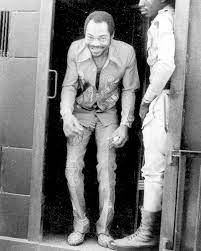
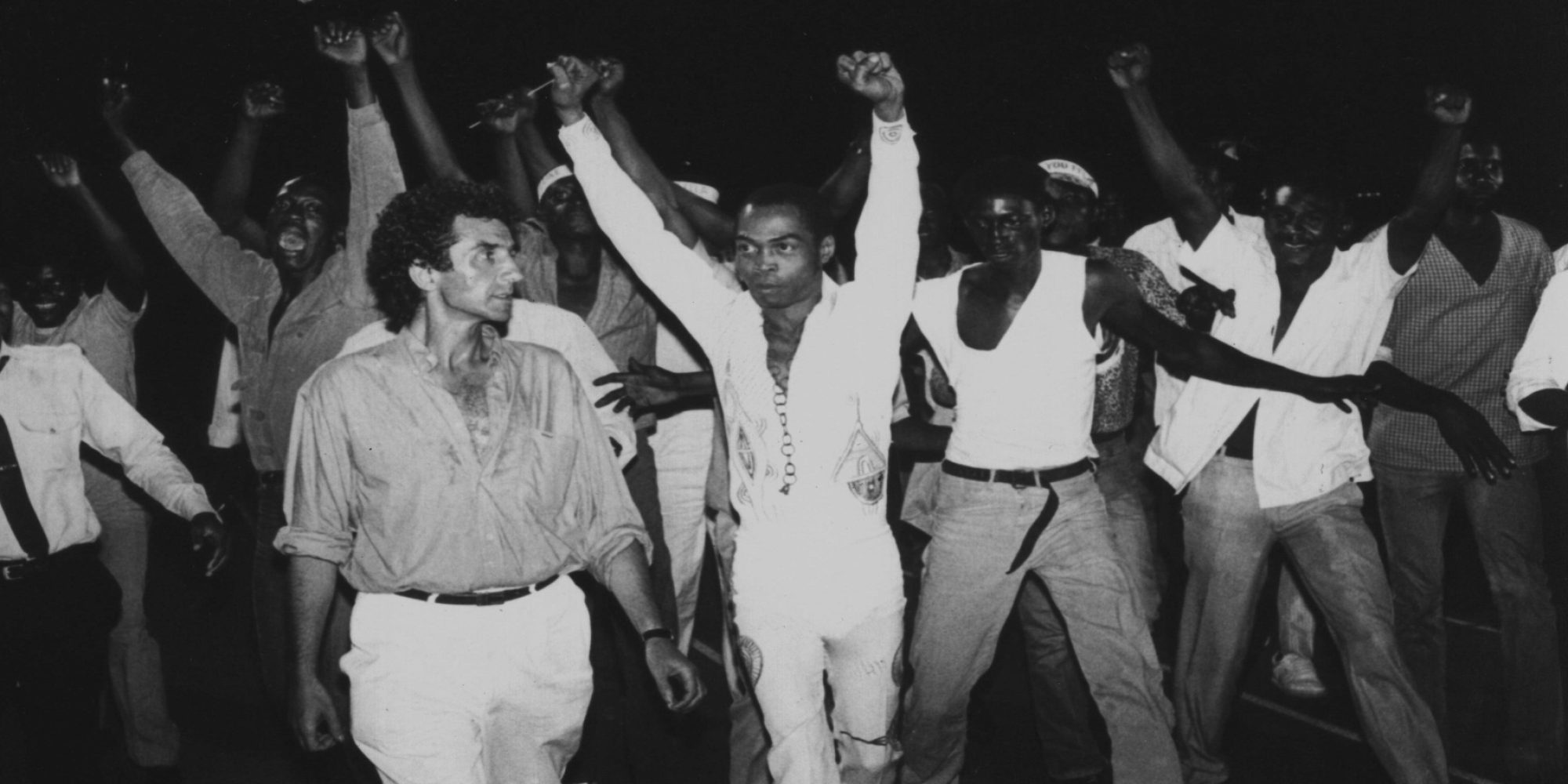
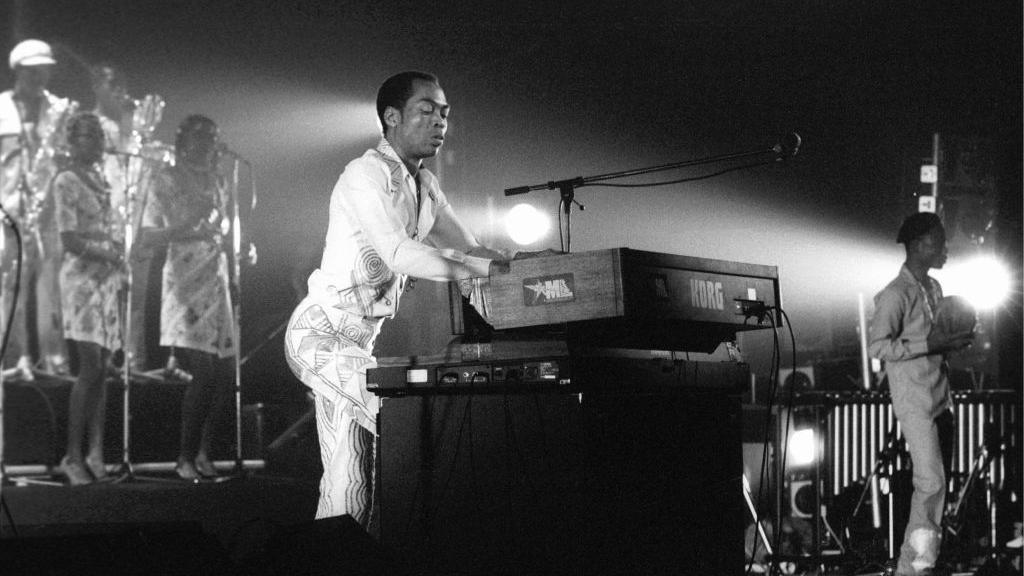
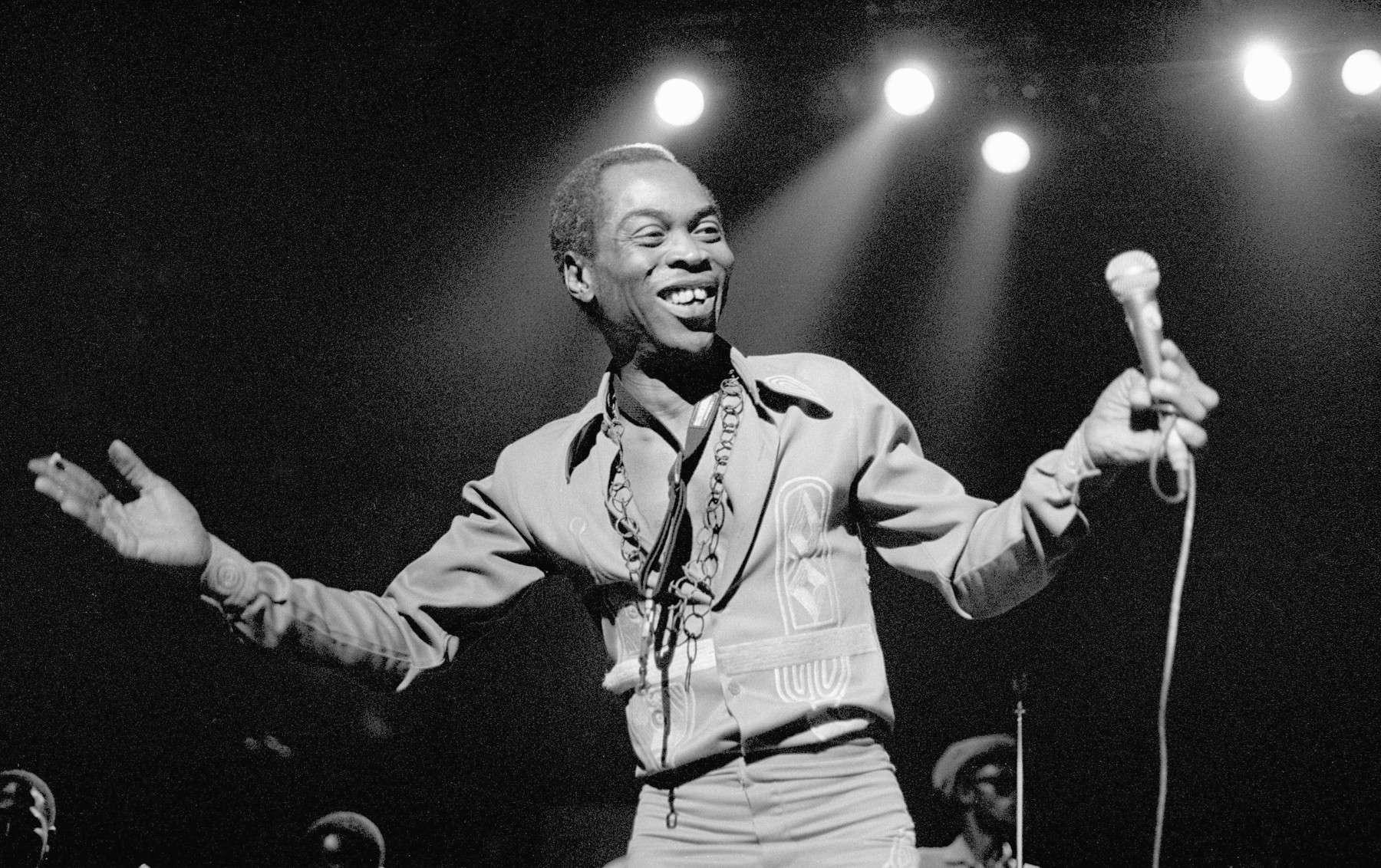
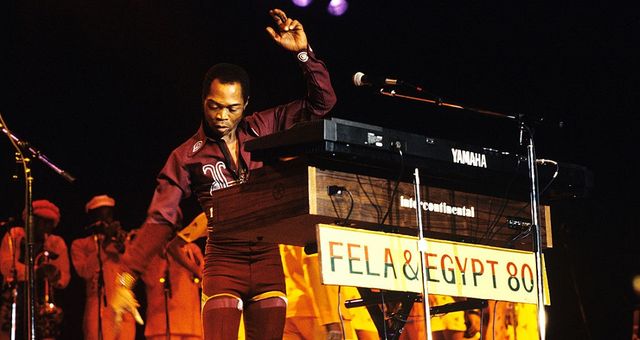
*NAIJA STANDARD: What were some of the great and unforgettable moments you had with FELA?
They’re too many to mention here. I recommend reading my memoirs, Moving Music
*NAIJA STANDARD: When the news hit that FELA died. Did your heart stopped? What transpired in your mind and how did his death affect you and your family?
I was mortified. AIDS they said. But as far as I’m concerned, Fela died of one beating too many. He was a giant of a man, but a man all the same. The system can only take so much and disease was able to enter.
This was a painfully poignant moment for me. Just one month earlier my father had died at the age of 85 and now my dear friend, Fela, had left us. Sorrowfully, I boarded a plane for Lagos.
*NAIJA STANDARD: Are there other Fela-related projects you have been working on recently?
I’m a self-appointed guardian of Fela’s legacy by virtue of our friendship, determined to ensure that he takes his rightful place among the pantheon of 20th Centuries most iconic actors. I continue, with the Kuti Family’s blessings, to look after his catalogue. This includes a series of vinyl box sets, each containing 7 albums, an original artwork poster, and a luxurious booklet, inviting respected artists to choose the albums and explain their choices.
The first box was curated by Questlove, the second by Ginger Baker, the third by Brian Eno, the fourth by Erykah Badu, the fifth was co-curated by Femi Kuti and Chris Martin from Coldplay, and the sixth was curated by Idris Elba. Each album was a meticulous reproduction of the original Nigerian releases. There’s one more box to come in ’26, completing the entire body of work, its illustrious curator yet to be announced.
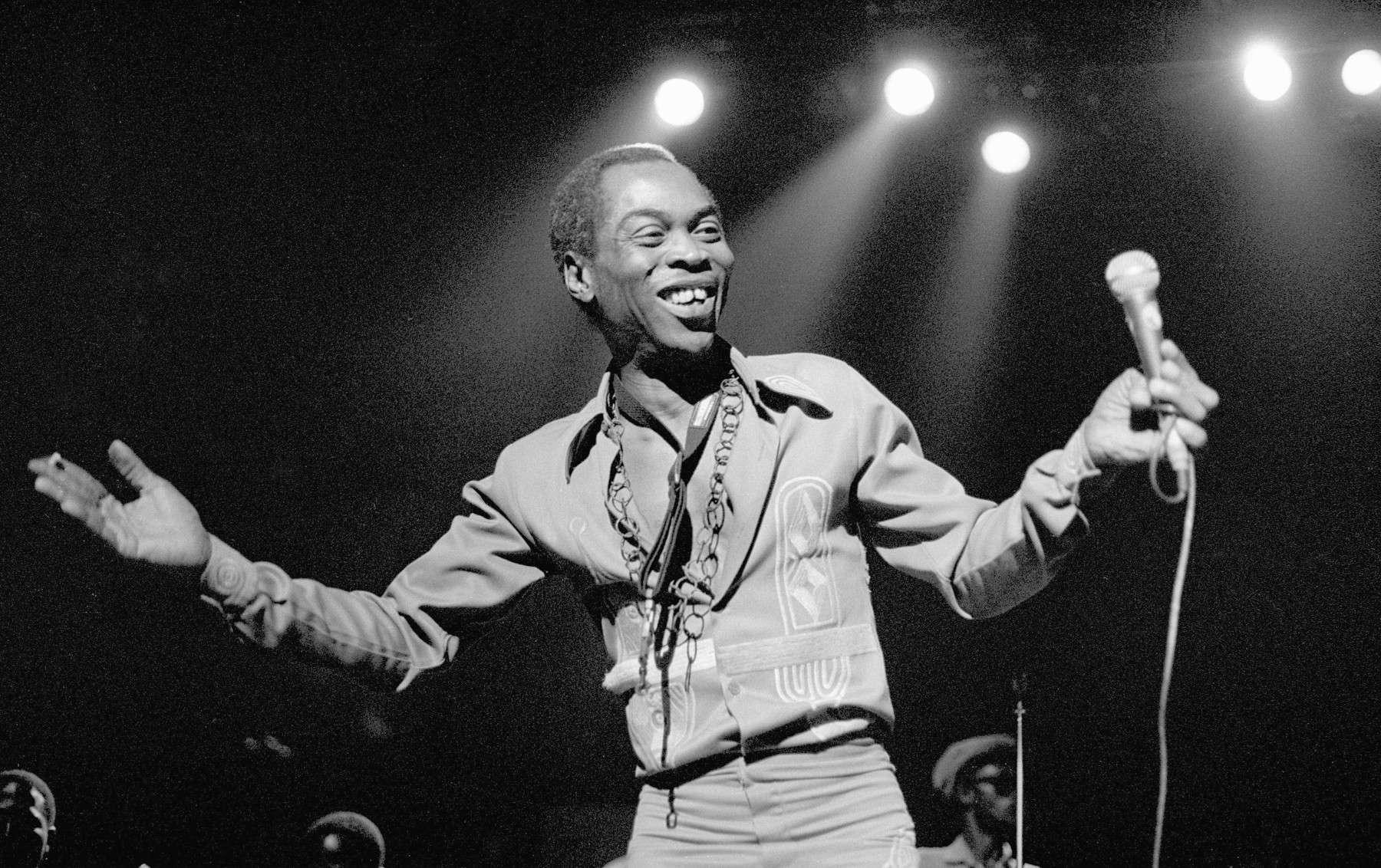
*NAIJA STANDARD: If you can see Fela now, what will you tell him face-to-face?
I’d report on what I’ve been doing to ensure that his wondrous catalogue reach the maximum number of people. I’d tell him how millions of people around the world continue listening to and appreciating his music. I’d inform him that there are well over a hundred Afrobeat bands operating, some in the most unlikely places.
I’d let him know that some fool had stuck an ‘s’ on the end of Afrobeat to support music, some of which was quite good but had precious little to do with his original art form, and I’d let him know how proud he would be of the work carried out by his children, Femi, Seun and his grandson Made. How his eldest child Yeni had been running the New Afrika Shrine for 25 years and how his youngest son Kunle was running the Kalakuta Museum in his former home.
*NAIJA STANDARD: Can you tell us if FELA’s songs are still receiving royalties till date?
Fela’s catalogue belongs to the Fela Anikulapo Kuti Estate of which all of his children are beneficiaries and yes, they all receive royalties
*NAIJA STANDARD: Are there schools or colleges or arts centers named after FELA Kuti that you are aware of?
Not to my knowledge, although we have established a Fela Anikulapo Kuti Scholarship at Trinity Laban College of Music in London where Fela had studied for 4 years.
*NAIJA STANDARD: Finally, how do you keep the memory of FELA Kuti alive?
I am one amongst many who love and respect Fela. He’s been gone now for 28 years, but he’s still keeping me busy!
For those who are interested in more detail of my time with Fela get a copy of Moving Music. It’s not just about Fela, also describing the many artists, pre and post Fela, with whom I had the privilege to work. It’s available as paperback, e-book and I’ve just released the audio version. All are available on Amazon, Audible and all good book stores.
DONATE TO HELP BUILD A SPECIAL APPS FOR JOURNALISTS AGAINST LIVER ELEVATION & KIDNEY FAILURE:
CERTAINLY, Good journalism costs a lot of money. Without doubt, only good journalism can ensure the possibility of a good society, an accountable democracy, and a transparent government. We are ready to hold every corrupt government accountable to the citizens. To continually enjoy free access to the best investigative journalism in Nigeria, we are requesting of you to consider making a modest support to this noble endeavor.”
By contributing to NAIJA STANDARD NEWSPAPER, you are helping to sustain a journalism of relevance and ensuring it remains free and available to all without fear or favor.
Your donation is voluntary — please decide how much and how often you want to give. For offline donation, email: letters@nigeriastandardnewspaper.com or call +2348037128048 (Nigeria) or +16825834890 (United States of America)
donation



